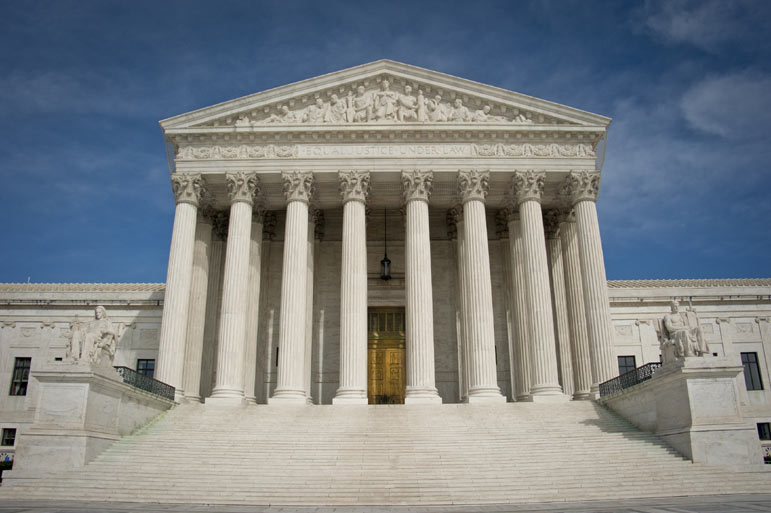
Can you sue a company in federal court for publishing false information that might affect your credit score? Congress says yes. But the Supreme Court seriously considered the possibility Monday that Congress lacks the authority to create that right if you haven't suffered a concrete injury.
The issue has far-reaching consequences for your rights and expectations of accuracy in the information economy. Everyone from Experian to eBay has weighed in with friend-of-the-court briefs. There's also a right answer --- but no guarantee the court will reach it.
The case, Spokeo Inc. v. Robins, began when Thomas Robins sued Spokeo, a people-search and information company, for posting inaccurate information about him. Spokeo seems to have described the wrong guy, saying he was married, in his 50s, rich and holding a graduate degree; in fact, he was none of the above.
Robins alleged Spokeo violated the Fair Credit Reporting Act, which says a consumer reporting agency must "follow reasonable procedures to assure maximum possible accuracy." It also says one can sue for either "actual damages sustained" or "statutory damages" --- from $100 to $1,000 just for violating the law.
The statutory damages are at stake in this case. Congress typically includes them as an incentive for private parties to sue in enforcement of federal laws. If the damages are set high enough or the violations are wide enough, class-action lawyers will bring suit even where no individual has been injured enough to make it worthwhile for him or her to sue alone. The class action aggregates all the damages, creating an attractive payday for the lawyers. The threat of such suits is supposed to force potential defendants to follow the law without the government spending money on enforcement.
What makes this case unusual is that Spokeo is arguing that Congress can't make the courts hear cases where the plaintiff hasn't suffered what it calls "real-world harm." The background to this claim is a constitutional doctrine that sounds unbearably boring but is incredibly important: the doctrine of standing.
It works like this: The Constitution says the federal judiciary may hear "cases and controversies." The Supreme Court has interpreted this to mean that there must be a real case before the courts can weigh in --- the issue can't be hypothetical. In the court's formulation, the court can decide a case only if the plaintiff alleges what it calls "injury in fact." These words don't appear in the Constitution, but the Supreme Court treats them as if they did.
So the issue before the justices is whether Congress can define statutory harm in such a way as to get a case into court. Spokeo says it isn't enough that it may have posted inaccurate information --- the plaintiff would have to show that he had actually been harmed. Robins says it should be enough if Congress says he's been harmed by the report of the false information.
Who's right? The answer is partly historical, but mostly pragmatic. Classically, common law courts recognized pretty vague injuries. The best analogue is defamation: In common law, you could recover damages for a written defamatory statement even without proving concrete harm.
The analogy is good because today, having false information about you on the Internet is very likely to harm you eventually, even if only marginally. It should be within Congress's authority to enable you to recover damages without pinning down exactly where the harm occurred --- just as common law courts thought it would surely be bad for you to have written defamatory statements out there in the old- fashioned world.
But the real reason the court should uphold the statute as applied by Robins is the practical value of statutory-damage lawsuits. In many, probably most, consumer-facing industries, there's little or no chance the government can or will spend resources to enforce every detail of legal regulation. The only way to police those industries is by creating private incentives. And you have to admit that class-action lawyers, like them or hate them, are vigilant private prosecutors.
In the Internet era, information is currency. Inaccurate information is costly not only to whoever buys it but also to the person who is mischaracterized. We can't rely on the private market to drive out false information because there's a systematic asymmetry between whoever aggregates the information in the first place and whoever buys it. Just as there's a market for lemons in the car industry, there's a market for false information in the credit reporting business and beyond.
The great danger here is that the justices' desire to keep the courts free of hypothetical litigation will merge with the regulated industries' desire not to be regulated. A radically pro-business decision could be couched as judicial caution and restraint. That would be a serious mistake, and a win for falsehood over accuracy.
Comment by clicking here.
Noah Feldman, a Bloomberg View columnist, is a professor of constitutional and international law at Harvard University and the author of six books, most recently "Cool War: The Future of Global Competition."
Previously:
• 11/03/15: At the Supreme Court, a case for fans of 'The Wire'
• 10/29/15: Law schools shouldn't baby their applicants
• 10/20/15: Egypt's parliamentary vote is sign of Arab winter
• 10/14/15: What you watch on your phone might not be private
• 10/13/15: Appeals court gets twisted in yoga copyright case
• 08/24/15: Black America has no rising leader, not even Obama
• 07/03/15: Supreme Court reaches the end of a political era
• 06/03/15: Will the Supreme Court really empower illegal aliens to vote?
• 01/27/15: Why judicial elections are idiotic and bad for law



 Contact The Editor
Contact The Editor
 Articles By This Author
Articles By This Author